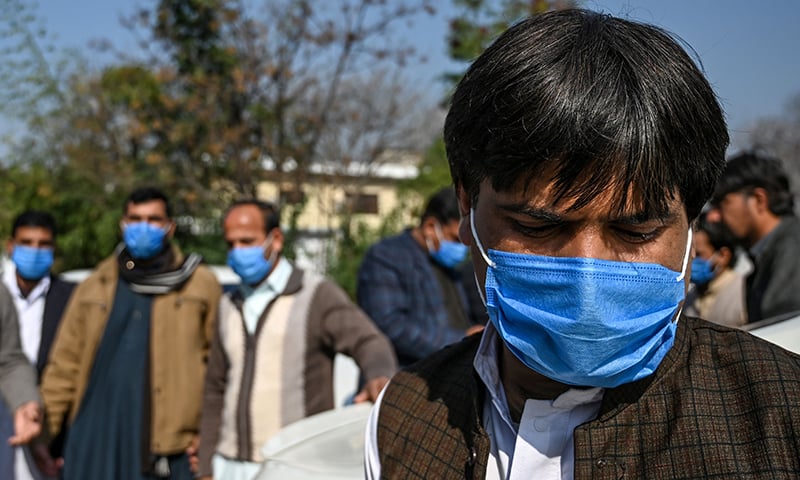FO says govt has complete data of Pakistani students and providing them assistance in China
3 min read
Foreign Office spokesperson Aisha Farooqui on Thursday said that the government had complete data of Pakistani students currently in China and was in touch with Chinese authorities to address any challenges the students may be facing.
Farooqui was addressing the outbreak of the coronavirus that has killed around 170 people in China and has been detected in many other countries including India, Japan, Canada and the United States, among others.
During a weekly press briefing, Farooqui gave assurances that the “Pakistani government was making an all-out effort for its citizens” stranded in China and was doing everything to assist them. She clarified that other countries were also in contact with China but none had attempted to repatriate its citizens.
The FO spokesperson said the government was aware that some Pakistani citizens were stranded on the Urumqi airport, adding that it was due to a flight delay. The government had contacted Chinese authorities and had requested them to “take care” of the Pakistani citizens, Farooqui told reporters.
Farooqui lauded the Chinese government’s efforts to deal with the outbreak of the coronavirus and said Pakistan stood by China in this difficult time.
Yesterday, premier’s aide Dr Zafar Mirza had said that up to four Pakistani students in China were diagnosed with the coronavirus. A large proportion of the Pakistanis living in China were students of which over 500 students were based in the central city of Wuhan, the epicentre of the new virus.
The FO spokesperson, during today’s press briefing, said the Pakistani government had formed a high-level committee to prevent the coronavirus from spreading. The National Institute of Health (NIH) had declared an emergency following which a special centre was set up.
She further said that the Pakistan-China border opening had been delayed until April due to the virus outbreak. The border crossing was previously scheduled to begin functioning in February, however, the Gilgit Baltistan (GB) government had sought a delay in the opening as a precautionary measure.
As GB is Pakistan’s closest region to China, precautionary measures are needed to prevent any possible threat of the spread of the disease to Pakistan, an official statement had said.
Pakistan begins screening at airports
No case of the coronavirus has been detected in Pakistan but the government has begun taking precautionary measures, including screening of passengers at airports. Thermal scanners have been installed at four major airports within Pakistan. The scanners — installed at airports in Karachi, Lahore, Islamabad and Peshawar — are intended to scan passengers arriving at international terminals.
According to a Pakistan International Airlines spokesperson, necessary instructions regarding the screening of passengers have also been passed to the national carrier’s station management and operating crew in China.
Measures to avoid being infected
The NIH, as well as international health bodies including the World Health Organisation (WHO) and United Kingdom’s National Health Service (NHS) have issued public advisories listing preventive measures which should be taken to prevent the spread of the virus.
Here are a few simple measures you can take to avoid being infected:
-Wash your hands regularly for no less than 10 seconds with soap and water. Using an alcohol-based sanitiser is also advised.
-Wear a facemask and avoid close contact with anyone with a cough or flu. Fever, cough and respiratory problems have been identified as early symptoms of coronavirus.
-If you have any of the above symptoms, contact a doctor at the earliest.
-Cover your mouth and nose with your hand or tissue while coughing or sneezing to protect other people from germs. Discard the tissue immediately and wash/sanitise your hands.
-While visiting a live market in an area where the virus has been detected, avoid contact with animals.
-Avoid eating undercooked meat. Raw meat should be handled carefully in order to avoid contamination.

